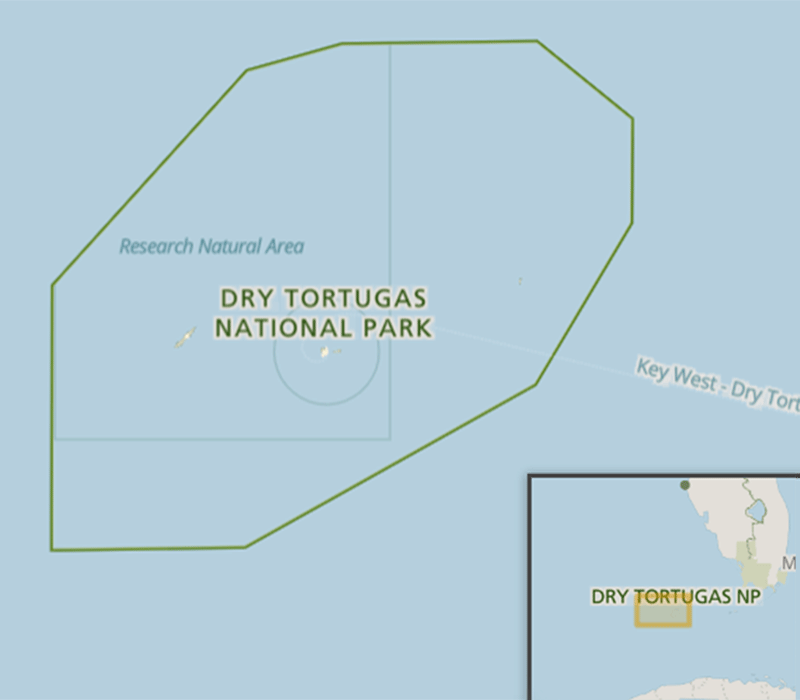
USGS Investigators: Ilsa B. Kuffner
NPS Investigators: Clayton Pollock
| 2022 |
|---|
| $49,000 |
NPS Park: Dry Tortugas National Park
USGS Center: St. Petersburg Coastal and Marine Science Center
States: FL
Coral reefs are a valuable natural resource to the people of Florida and the nation, and Dry Tortugas National Park (DRTO) contains within its boundaries some of the last remaining, healthy examples of coral reef habitat in the western Atlantic. Coral reefs are important because they provide critical fisheries habitat, form barriers to protect shorelines and cultural resources, and house substantial biodiversity. However, coral reefs are in decline across the globe because of warming and acidifying oceans, over-exploitation through fishing and coastal development, and problems with water quality.
Dry Tortugas is a recognized gap for most water-quality data sets along Florida's coral reef. This gap greatly impedes the scientific community’s ability to understand the mechanisms behind coral growth that will affect potential coral restoration efforts. Water-quality data could yield water-quality profiles of the aragonite-mineral carbonate-saturation state, which is an indicator of a body of water’s conduciveness to supporting calcification (the precipitation of aragonite skeleton) by corals and other calcifying organisms serving important roles in reef construction.
This project will directly address a standing problem regarding lack of water-quality data from DRTO, which is an important end-member location of Florida’s reef tract. The objective of this technical assistance task is the collection of water-quality data that will allow the estimation of the ocean’s conduciveness to support calcification (the aragonite saturation state) at two sites of high scientific interest within the park.
